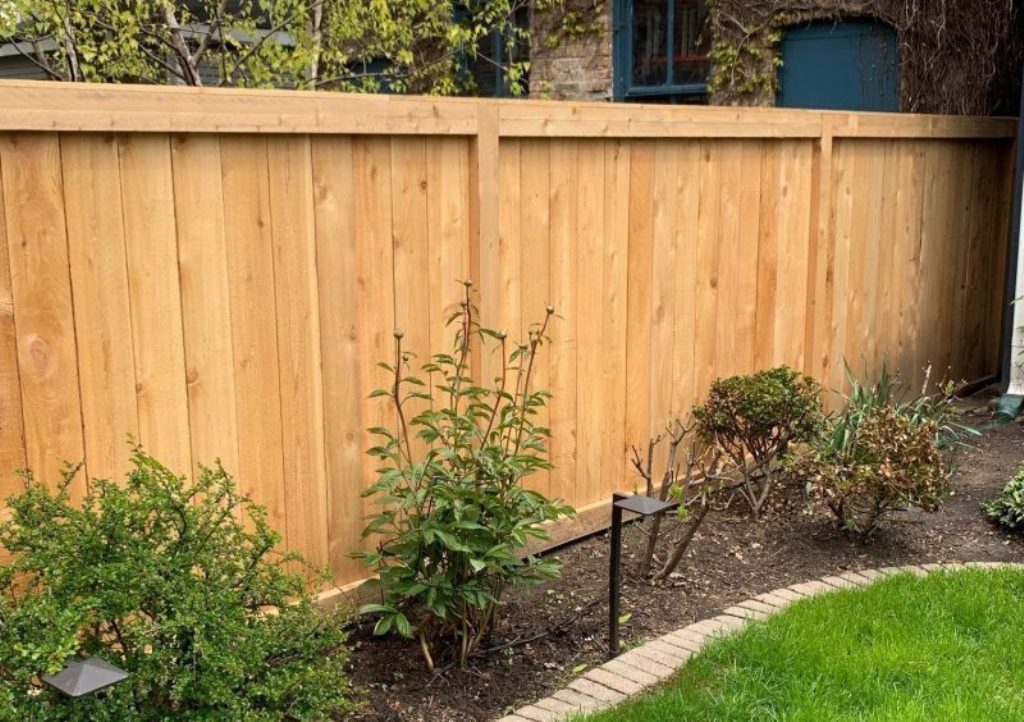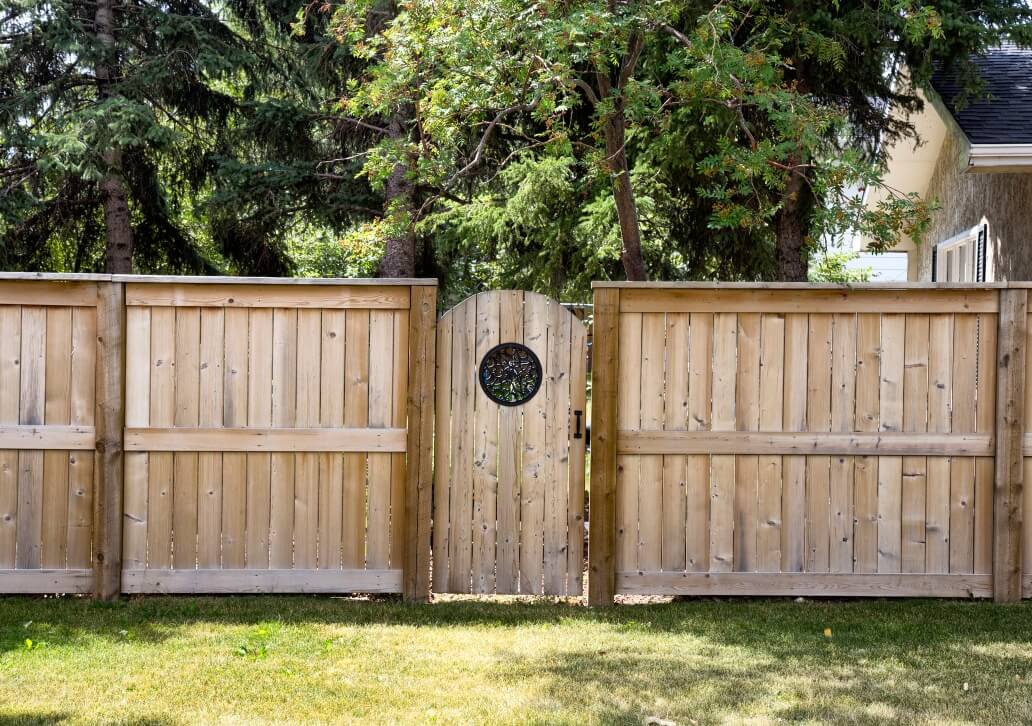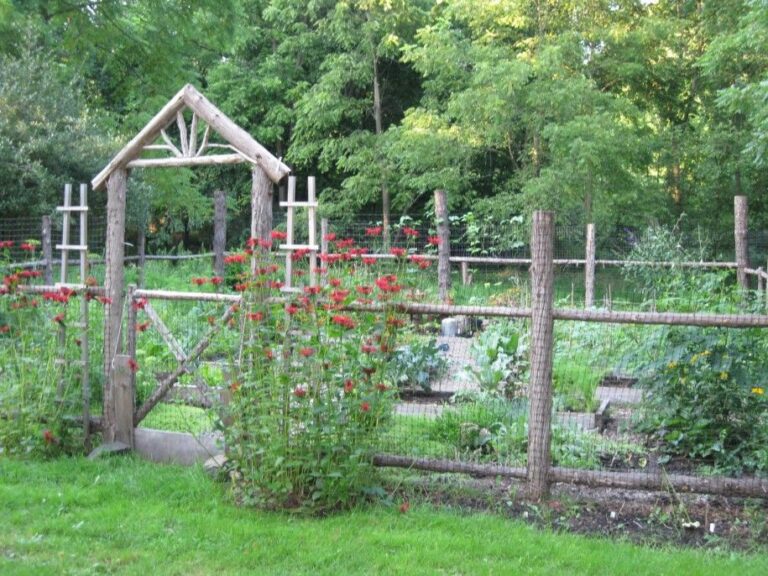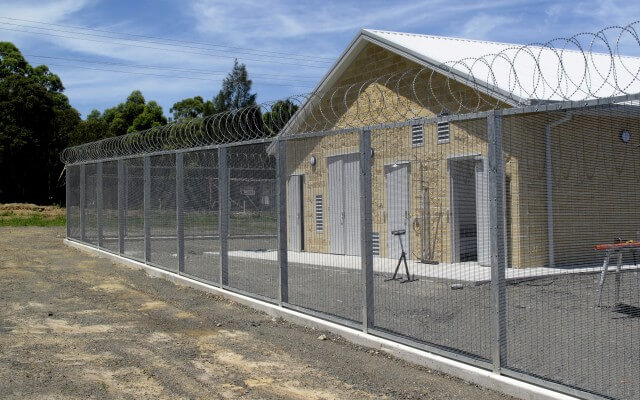Wooden fences have numerous environmental benefits, including their sustainability, biodegradability, and ability to sequester carbon. They are renewable, making them a more eco-friendly option than metal or vinyl.
Additionally, wooden fences can last for many years, reducing the need for frequent replacements.
Wood also requires less energy to produce compared to other materials, resulting in lower carbon emissions.
The production of wooden fences also supports the forestry industry, which contributes to the maintenance of healthy forest ecosystems.
Furthermore, wooden fences are aesthetically pleasing, blending seamlessly with natural surroundings and providing habitat for various wildlife.
These environmental advantages make wooden fences a sustainable and eco-conscious choice for property owners.

Sustainable Sourcing Of Wood
However, beyond just the sourcing of materials, the design and construction of the fences play a critical role in their environmental impact and aesthetic appeal.
This is where the expertise of a professional can make a significant difference. Professional fence design services available at Fencing San Mateo ensure that your wooden fence is not only environmentally friendly but also tailored to your specific style and needs.
Their team of experts combines sustainable practices with innovative designs to create fences that are both beautiful and beneficial to the environment.
Naturally Renewable Material
The use of wood as a primary material for fences holds great benefits for the environment, as it is a naturally renewable resource.
Forests, when managed responsibly, can continually provide an abundant supply of wood, making it a sustainable choice for fencing materials.
Carbon Sequestration
In addition to its renewability, wood fences contribute to the reduction of carbon dioxide in the atmosphere through the process of carbon sequestration.
Trees naturally capture and store carbon during their growth, and this carbon remains locked within the wooden fence, thereby helping to mitigate climate change.
Responsible Forest Management
One of the key factors in sustainable wood sourcing is responsible forest management.
This involves ensuring that the wood used in fence production is sourced from forests that are managed in an environmentally and socially responsible manner, promoting biodiversity and the long-term sustainability of the ecosystem.
Eco-friendly Installation And Maintenance
When it comes to environmentally friendly fencing options, wooden fences are a top choice due to their eco-friendly installation and maintenance practices.
Let’s delve into the aspects of minimal energy consumption, biodegradability, and low carbon footprint associated with wooden fences.
Minimal Energy Consumption
Unlike the production of metal or plastic fences, wooden fence manufacturing consumes significantly less energy.
The sustainable sourcing of wood minimizes the environmental impact, making wooden fencing an ideal choice for eco-conscious homeowners.
Biodegradability
Wooden fences are renowned for their biodegradability, providing a sustainable solution for properties.
Once a wooden fence reaches the end of its lifecycle, it naturally decomposes without releasing harmful chemicals or toxins into the environment.
This aligns with the principles of environmental stewardship, contributing to a healthier ecosystem.
Low Carbon Footprint
The installation and maintenance of wooden fences result in a lower carbon footprint compared to alternative fencing materials.
With proper maintenance and treatment methods, wooden fences can stand the test of time, reducing the need for frequent replacements and minimizing waste.
This promotes a more sustainable and eco-friendly approach to fencing solutions.
Long-term Environmental Impact
When it comes to the long-term environmental impact, wooden fences stand out as a sustainable choice for homeowners and businesses alike.
The use of wood as a fencing material can lead to several environmental benefits that extend far into the future, making it a favorable option for those looking to minimize their ecological footprint.
Erosion Prevention
Wooden fences play a crucial role in preventing erosion, particularly in areas with loose soil or sloping terrain.
The solid construction of wooden fences helps to stabilize the soil and reduce the risk of erosion caused by wind and water.
By acting as a barrier, wooden fences contribute to preserving the natural integrity of the landscape and safeguarding against soil degradation.
Wildlife Preservation
In addition to their functional purpose, wooden fences also provide a habitat for various wildlife species.
The presence of wooden fences can create a sheltered environment for small animals, birds, and insects, supporting biodiversity within the local ecosystem.
This coexistence with wildlife showcases the harmonious relationship between wooden fences and the natural surroundings.
Recyclability And Upcycling Opportunities
Wooden fences are highly recyclable and offer ample opportunities for upcycling.
When the time comes to replace a wooden fence, the wood from the old structure can be reused in various ways, such as crafting furniture, garden accents, or other decorative elements.
This inherent recyclability minimizes waste and extends the lifespan of the wood, contributing to a sustainable cycle of resource utilization.

Frequently Asked Questions
How Do Wooden Fences Benefit The Environment?
Wooden fences benefit the environment by providing a sustainable, biodegradable fencing option that reduces the carbon footprint.
Are Wooden Fences Eco-friendly And Sustainable?
Yes, wooden fences are eco-friendly and sustainable as they are made from renewable resources and can be recycled.
Do Wooden Fences Help In Preserving Natural Habitats?
Yes, wooden fences help in preserving natural habitats by reducing the need for non-biodegradable materials and minimizing environmental impact.
Conclusion
Wooden fences offer numerous environmental benefits. They are sustainable, biodegradable, and carbon-neutral, contributing to a healthy ecosystem.
By choosing wooden fences, you can reduce your environmental footprint and support sustainable forestry practices.
Embracing wooden fences enables individuals to make a positive impact on the environment while enjoying the aesthetic appeal and durability of wood.







